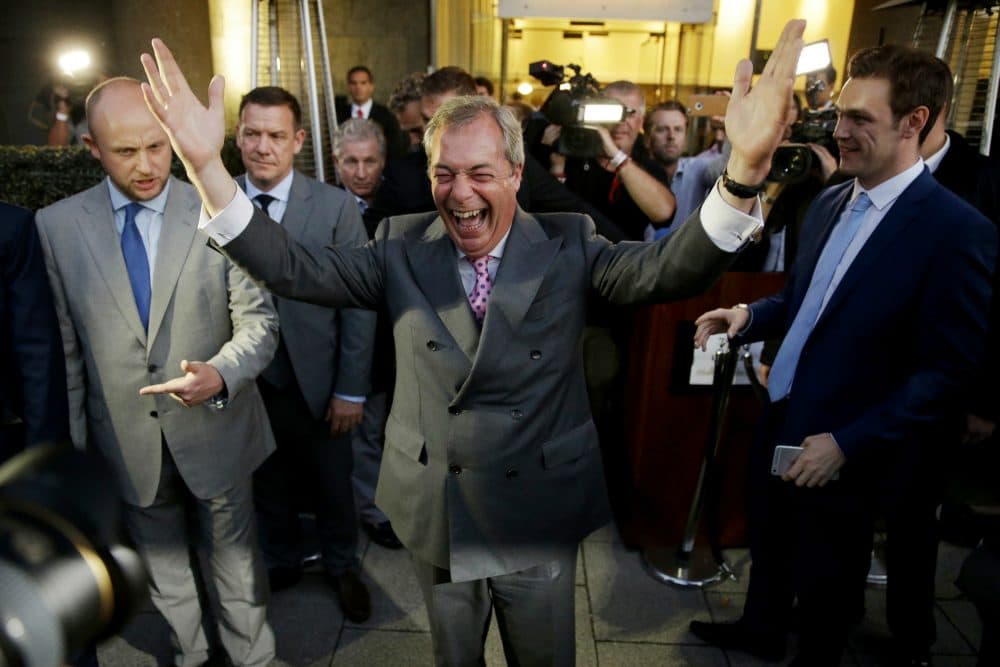Advertisement
Brexit: Britain's Divorce From The EU Was A Long Time Coming

Britain’s divorce from the European Union has turned the status quo upside down. After dawn’s early light, investors were cashing out of markets and selling sterling as fast as possible. Politicians were resigning. Business people and entrepreneurs were worrying about the future.
The love affair has ended, but it has been years in the making. The evolution of the European Union over the past 60 years provides a powerful lesson in overreaching and under protecting, which is not a healthy dynamic for any relationship.
The European Economic Community, or the Common Market, began in the late 1950s to promote free trade among countries in Europe. In 1993, the European Union was created with a much larger vision; it wanted to become the United States of Europe. Citizens of member nations would become European and carry burgundy and gold European passports. At the time, many Brits were giddy over the idea of being European, embracing a larger world, being able to travel freely and work freely in other countries.
Britain always harbored a healthy skepticism over full engagement in the EU.
Yet, Britain always harbored a healthy skepticism over full engagement in the EU, and unlike France, which gave up the franc, and Germany, which gave up the Deutsche mark, Britain never abandoned the pound in favor of the euro, and she declined to join the EU’s monetary union in 1999.
The EU focused on regimentation. From the beginning, farmers chafed over the level of standardization of processes and products the EU required, with more than 80 regulations surrounding milk and butter, for instance. After much give and take, the EU allowed cheeses, such as Red Leicester, Pecorino and Brillat Savarin, to retain their regional identities.
Although the European Union decreased the cost of trade and increased the amount of trade for its members, there was a sense among many producers that the rules were too restrictive. One English farmer interviewed on the PBS NewsHour objected to the EU rules about how her organic pigs had to be slaughtered.
To work out, or harmonize, the national differences among the EU’s 28 members, the bureaucracy kept growing. There is a European Commission, a European Council, a European Parliament, a Court of Justice and a Central Bank. This meddlesome superstructure is financed by its members; in 2015, the UK government paid $18 billion dollars into the EU budget, but only got $6 billion back. Many of the Brits who voted to exit felt annoyed that they weren’t getting as much out of the arrangement as they were putting in.
Advertisement
...the core of the EU’s success -- unrestricted travel and trade of people and goods through open borders -- has become a liability.
Over time, the most exciting aspect of the EU — Europeans being able to travel or work anywhere — became a burden for Britain. Between 1993 and 2014, “the number of foreign citizens increased from nearly 2 million to more than 5 million,” according to migration experts Cinzia Rieno and Carlos Vargas-Silva. People were flocking to work in Britain, mainly from Eastern Europe. Richer countries typically attract workers from poorer ones.
EU regulations then stipulated how those workers were to be treated. “Migrant workers, along with their families, are entitled to social security benefits identical to those shared by native workers (Article 3.1) as soon as they have resided in the country for at least one year,” explained Francesco Duina, a sociologist at Bates College, in the journal Economy and Society.
Essentially, the core of the EU’s success — unrestricted travel and trade of people and goods through open borders — has become a liability. Hungary is considering leaving the EU after its southern border was overrun by Middle Eastern and African refugees. Unless the EU figures out how to protect its members from the free flow of legal and illegal migrants, more countries will be saying farewell, au revoir, auf wiedersehen, good bye.
editor's note: Susan E. Reed covered the evolution of the European Union while living in London.
